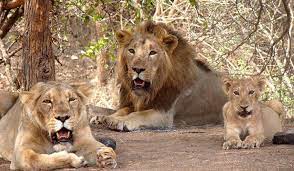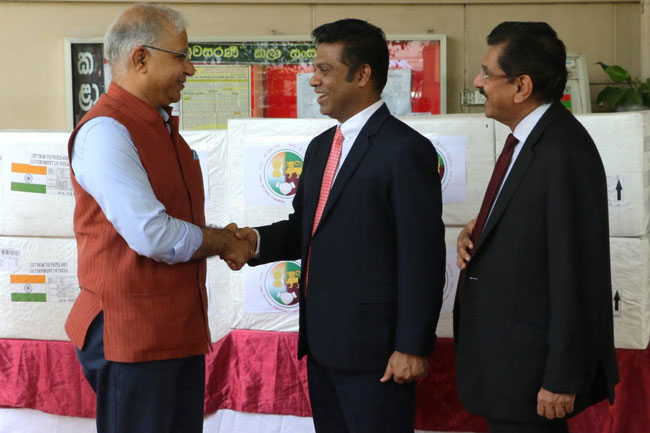Eight lions in Hyderabad Zoo test positive for Covid
Wed 05 May 2021, 10:21:41

Eight Asiatic lions at the Nehru Zoological Park, which displayed signs of respiratory distress prompting authorities to send their samples for testing to CCMB-LaCONES, have tested positive for Covid-19. The CCMB analysed the genomes of coronavirus samples from these lions and did not find those to be a variant of concern.
“The lions have been now isolated at the zoo from other animals, and are receiving due care and necessary treatment. They are also responding well to the treatment and recovering. Preventive measures are already in place for all the staff and the zoo has been closed to visitors to avoid minimal external contact,” says Dr S Kukrety APCCF and Director of Zoos, Telangana.
It was on April 24 that the zoo authorities sent samples of the lions, collected from the nose, throat and respiratory tract under anesthesia, after the lions showed signs of respiratory distress. Based on detailed diagnostic tests and reports as shared by CCMB-LaCONES on May 4, it has been confirmed that eight Asiatic lions housed in Nehru Zoological Park have tested positive for the SARS-CoV2 virus, officials
said.
said.
“Since the pandemic began, many zoos and animal farms have reported that their animals have gotten infected from humans. It is essential to strictly follow safety regulations in Indian zoos in the current times to avoid transmitting the infection to the animals.
We have to carefully document the different symptoms that coronavirus infection causes in animals as well as develop non-invasive ways to procure samples from animals. Moreover, getting swab samples from animals is very difficult,” informs Dr Karthikeyan Vasudevan, Scientist-in-charge, LaCONES-CCMB.
India has four designated Covid-19 testing centres for captive animals, of which LaCONES-CCMB is one. “We are looking forward to now testing animal samples for coronavirus by testing their faecal samples. This can be a useful method of testing for both captive and free-ranging animals,” says Dr Rakesh Mishra, Advisor, CCMB. “Looking for the spread of coronavirus in animals opens up an unchartered area of work for CCMB. And it is an emerging requirement for managing the pandemic,” says Dr Virendra Tiwari, Director-in-charge, CCMB.
No Comments For This Post, Be first to write a Comment.
Most viewed from Hyderabad
Most viewed from World
AIMIM News
Delhi Assembly polls: Owaisi leads Padyatra in Okhla
Feb 01, 2025
We reject this Waqf Amendment Bill: Asaduddin Owaisi
Jan 30, 2025
Latest Urdu News
Most Viewed
May 26, 2020
Do you think Canada-India relations will improve under New PM Mark Carney?
Latest Videos View All
Like Us
Home
About Us
Advertise With Us
All Polls
Epaper Archives
Privacy Policy
Contact Us
Download Etemaad App
© 2025 Etemaad Daily News, All Rights Reserved.






.jpg)
.jpg)
.jpg)
.jpg)
































